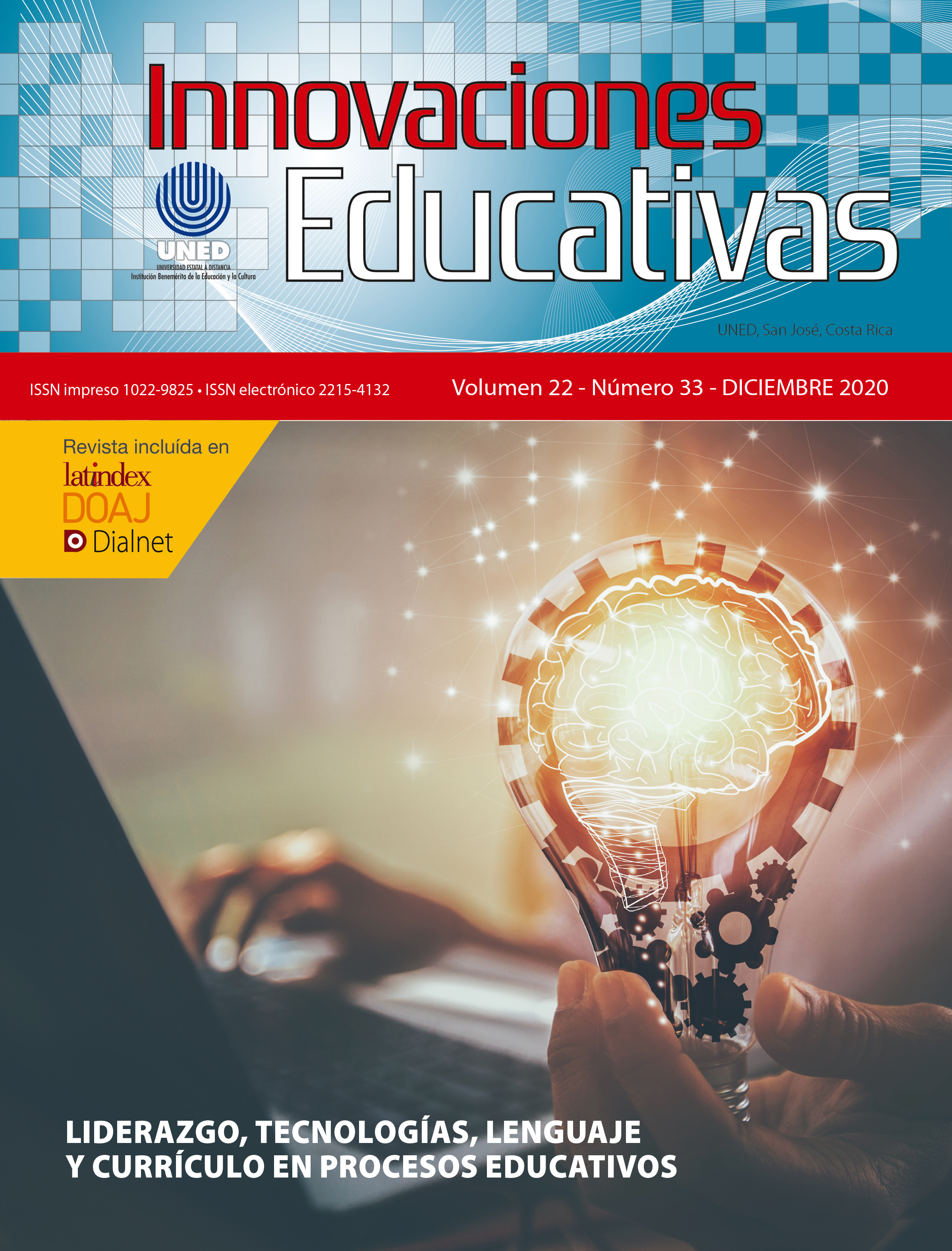Deep Learning in teacher training: Experience with students of Education Teaching at the Universidad de Costa Rica
DOI:
https://doi.org/10.22458/ie.v22i33.3125Keywords:
Deep learning, critical thinking, pedagogical skills, teaching and trainingAbstract
This paper presents a learning lab’s development from a critical reflection experience of the learning-teaching process within the classroom. The objective is to help teachers learn to create didactic strategies that establish a relation between the disciplinary content and students’ daily lives. Also, it urges teachers to ponder on their own teaching model and how it could change within a more significant process. This experience with students majored in Education and Teaching at Universidad de Costa Rica is based on the Deep Learning approach. For this reason, it uses critical reflection towards the change of paradigm through reading analyses, discussion forums, and the design of didactic strategies. The findings suggest teachers’ contribution regarding strategy creation for significant and enduring learning in the students’ lives is necessary. Also, it suggests the need to transcend superficial teaching towards deep learning and to transform the academy into a center of experience capitalization in order to know how to act in class, think for the class, and learning for teaching.
References
Álvarez, J. A, Álvarez, T, Sandoval, R. J, y Aguilar, M. (2019). La exploración en el desarrollo del aprendizaje profundo. RIDE Revista Iberoamericana Para La Investigación Y El Desarrollo Educativo, 9(18), 833 - 844. Recuperado desde: https://doi.org/10.23913/ride.v9i18.474
Aravena, F. (2018). Aprendizaje profundo: Una demanda necesaria para participar en la sociedad del siglo XXI. LÍDERES EDUCATIVOS (1) pp.7-8. Valparaíso, Chile: LÍDERES EDUCATIVOS, Centro de Liderazgo para la Mejora Escolar. Recuperado desde: https://www.lidereseducativos.cl/recursos/boletin-no1-2018/
Cortez, M. (2018). Liderar para promover el aprendizaje profundo en los estudiantes: El desafío de los líderes educativos en el siglo XXI. Nota técnica Nº 4. LIDERES EDUCATIVOS, Centro de Liderazgo para la Mejora Escolar: Chile. Recuperado desde: https://www.lidereseducativos.cl/wpcontent/uploads/2018/08/NT4_L1_M.C._Liderar-para-promover-el-aprendizaje-profundo-en-losestudiantes_20-08.pdf
Díaz A; Pérez M. V. (2013). Autoeficacia, enfoque de aprendizaje profundo y estrategias de aprendizaje. International Journal of Developmental and Educational Psychology, (2) pp. 341-346 Asociación Nacional de Psicología Evolutiva y Educativa de la Infancia, Adolescencia y Mayores Badajoz, España. Recuperado desde: https://www.redalyc.org/pdf/3498/349852173023.pdf
Moreno, I. (2004). Utilización de medios y recursos didácticos en el aula. Departamento de Didáctica y Organización Escolar Facultad de Educación, Universidad Complutense de Madrid. Recuperado desde: https://webs.ucm.es/info/doe/profe/isidro/merecur.pdf
Ortega, C, y Hernández, A. (2015). Hacia el aprendizaje profundo en la reflexión de la práctica docente. Ra
Ximjai, (11) pp. 213-220 Universidad Autónoma Indígena de México El Fuerte, México. Recuperado desde: https://www.redalyc.org/pdf/461/46142596015.pdf
Pozo C, y Simonetti, F. (2020). ¿Cómo indagar sobre aprendizaje profundo en centros escolares? Instrumentos
y orientaciones prácticas. LIDERES EDUCATIVOS (1) pp.2-13. Valparaíso, Chile: LIDERES EDUCATIVOS Centro de Liderazgo para la Mejora Escolar. Recuperado desde: https://www.lidereseducativos.cl/wp-content/uploads/2018/06/PL1_POZO_SIMONETTI_APRENDIZAJEPROFUNDO_22-06.pdf

